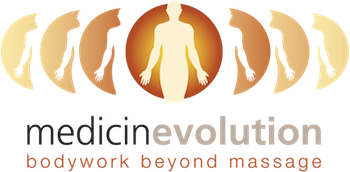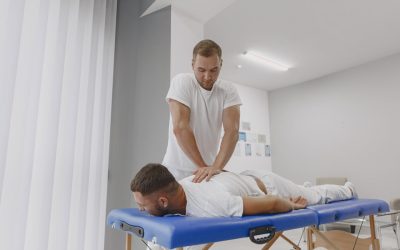Massage therapy is a popular and beneficial form of complementary and alternative medicine that has been used for centuries to promote relaxation, relieve stress, ease muscle tension, and improve overall well-being. While massage therapy is generally considered safe and effective, like any other medical intervention, it can have potential negative side effects if not performed correctly or if certain precautions are not taken. In this article, we will discuss how to avoid the negative side effects of massage therapy and ensure a safe and enjoyable experience.
Choose a Qualified Massage Therapist
The first step in avoiding the negative side effects of massage therapy is to choose a qualified and experienced massage therapist. Look for a licensed and certified massage therapist who has received proper training and has a good reputation. You can ask for recommendations from friends, family, or healthcare professionals, or search for certified massage therapists in your area through reputable organizations such as the American Massage Therapy Association (AMTA) or the National Certification Board for Therapeutic Massage and Bodywork (NCBTMB).
Communicate Your Health History and Concerns
Before your massage session, it’s important to communicate your health history and concerns to your massage therapist. Inform them about any pre-existing medical conditions, allergies, recent injuries, surgeries, or medications you are taking. This will help your massage therapist tailor the session to your specific needs and avoid any potential complications. If you have any concerns or preferences regarding the pressure, techniques, or areas of focus, make sure to communicate them clearly to your massage therapist.
Be Mindful of Pressure and Techniques
Massage therapists use various techniques and pressures during a session, such as Swedish massage, deep tissue massage, or sports massage. While some pressure and discomfort may be normal during a massage, it’s important to communicate with your therapist if the pressure is too intense or causes pain. Avoiding excessive pressure or inappropriate techniques can help prevent bruising, soreness, or muscle strains. Remember, massage therapy should be a relaxing and enjoyable experience, and you should feel comfortable throughout the session.
Hydrate Before and After the Massage
Taking the time to stay adequately hydrated before and after a massage is key to experiencing its full benefits. While massage helps the body flush out toxins, it can also lead to dehydration if not managed properly. Being prepared with enough water before the session can ensure that your body stays revitalized and can process the metabolic waste released during the massage. It may even help reduce potential negative side effects like headaches, dizziness, and muscle cramps afterward. Make sure you pay attention to hydration before and after every massage – it’s just as important as the session itself.
Take Precautions against Certain Health Conditions
While massage therapy is generally safe for most people, certain health conditions may require extra precautions or modifications. If you have a history of heart disease, high blood pressure, diabetes, osteoporosis, or other chronic health conditions, make sure to inform your massage therapist. They can adjust the pressure, techniques, or duration of the session accordingly to ensure your safety. Pregnant women should also consult with their healthcare provider and choose a massage therapist who is trained in prenatal massage to avoid potential risks.
Avoid Eating a Heavy Meal Before a Massage
Eating a heavy meal before a massage session can cause discomfort, bloating, or indigestion. It’s best to avoid eating a large meal at least 1-2 hours before your appointment to allow your body to digest the food properly. However, it’s also important not to go to your massage appointment on an empty stomach, as low blood sugar levels can cause lightheadedness or dizziness. Opt for a light, balanced snack if you need to eat before your massage.
Take Care of Your Skin
Taking good care of your skin before, during, and after a massage is essential for preventing potential skin reactions. Before starting your session, give your massage therapist an update on your existing skin condition as well as any allergies you may have. During the session itself, ask that they use lotions or oils appropriate to your sensitivity level. To prevent skin reactions after the massage, take a warm shower or bath afterward and gently dry your skin with a towel. Doing this will ensure that any residue of oils and creams is removed safely and quickly, leaving your skin refreshed and healthy looking.
Follow Up with Self-Care
Once the massage is over, it’s important to continue the healing process at home. Taking time for self-care can help you maintain the benefits of your massage and avoid potential soreness or muscle tension afterward. Stretching exercises and light activity can also help reduce stiffness and keep your muscles loose. Doing some meditation, yoga, or relaxation techniques can further help you relax and stay in balance. Making self-care a regular part of your routine will ensure that the positive effects of your massage last longer.
Get Regular Massage
Getting regular massage therapy can help you stay healthy and in balance. As your body adjusts to the techniques used during sessions, it can start to process and heal more efficiently. Also, since massage helps promote muscle relaxation and reduce stress levels, regular visits can make it easier for you to relax throughout the day and sleep better at night. It’s best to develop a consistent massage schedule with your therapist to ensure that you are taking full advantage of all the health benefits massage can offer.
Listen to Your Body
The most important thing to remember when getting a massage is to listen to your body and communicate with your therapist at all times. If something feels uncomfortable or too painful, make sure to let your massage therapist know so they can adjust accordingly. Remember that a massage session should be a pleasant and relaxing experience, and if the pressure or techniques used don’t feel right for you, speak up!
Massage therapy is a great way to relax, heal, and promote overall health and well-being. Taking proper precautions before, during, and after your massage sessions can ensure that you are getting the most out of every session. It’s important to always inform your massage therapist about any pre-existing conditions or allergies, as well as listen to your body and communicate any discomfort. With these tips in mind, you can enjoy the full benefits of massage therapy and avoid potential risks.
Our Expert’s Take
Taking care of yourself is so important, and massage therapy can be a great way to do this. From the benefits to potential risks, understanding how to avoid the negative side effects gives you more power over your physical well-being. Make sure to choose a qualified massage therapist, communicate your health history and concerns before the massage, be mindful of pressure and techniques used during the massage, hydrate before and after the session, take precautions against certain preexisting health conditions, avoid eating a heavy meal before a massage, take care of your skin, follow up with self-care activities after the massage and get regular massages. And last but not least when it comes to avoiding potential negative side effects of massage therapy–listen to your body! This is one way we can start taking better care of ourselves and feel better in our day-to-day lives.
Here’s our expert’s take on this: don’t be afraid to ask questions or express any discomfort while at the spa or make an appointment with a masseuse. Knowing what works best for you can make getting a good-quality massage that much easier.
Are You an Athlete Experiencing Pain But Don’t Know Where to Turn for Help?
Are you tired of dealing with chronic pain and discomfort caused by imbalanced body postures, repetitive movements, or a sedentary lifestyle? Look no further than Beyond Ergonomics, where our expert team specializes in identifying and addressing the root causes of your pain problems. Whether you’re a professional athlete or a desk-bound office worker, we provide personalized solutions to help you improve your overall health and wellness.
And if you’ve tried every remedy under the sun and still can’t find relief, MedicinEvolution’s Bodywork Beyond Massage is here to help. Our innovative approach goes beyond traditional massage to target the underlying issues causing your pain and discomfort. Say goodbye to the endless cycle of pain and frustration, and make your appointment today to experience the life-changing benefits of our unique approach to bodywork.






0 Comments